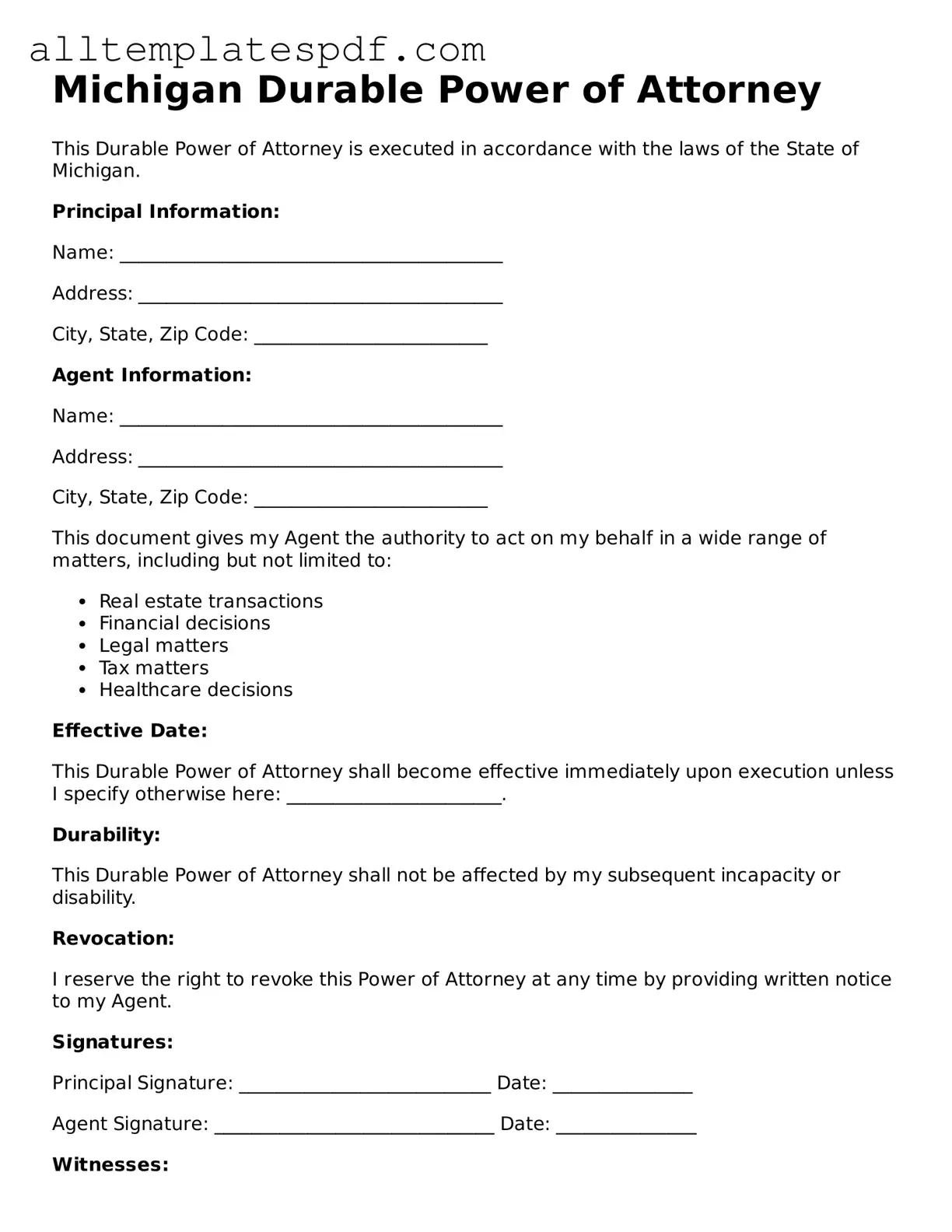Blank Durable Power of Attorney Template for the State of Michigan
A Michigan Durable Power of Attorney form is a legal document that allows an individual to appoint someone else to make financial and legal decisions on their behalf. This form remains effective even if the person becomes incapacitated, ensuring that their affairs can be managed without interruption. Understanding its importance can help you plan for the future; consider filling out the form by clicking the button below.
Open Editor

Blank Durable Power of Attorney Template for the State of Michigan
Open Editor
Fast and easy form completion
Complete Durable Power of Attorney digitally — fast and easy.
Open Editor
or
↓ Durable Power of Attorney PDF Form
